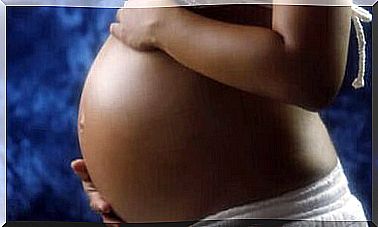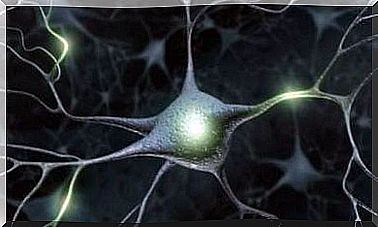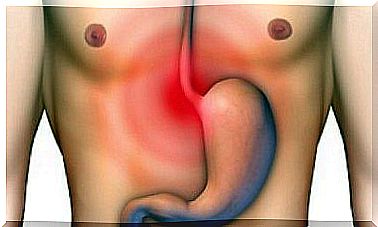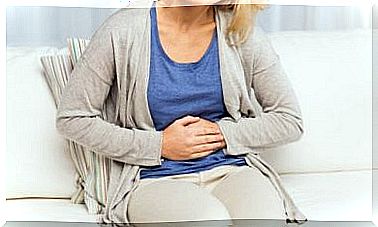Does An Epidural Reduce The Risk Of Postpartum Depression?
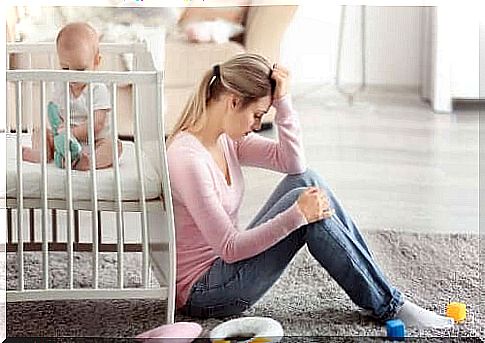
Epidural anesthesia, or epidural for short, can be of great help in relieving postpartum pain. Now, however, the question is, can it really also help reduce the risk of postpartum depression?
Does an epidural prevent postpartum depression?
A study published in 2014 has linked epidural anesthesia to postpartum depression. In fact, the study reported that only 14 percent of women who received epidural anesthesia experienced postpartum depression at a later stage. In contrast, as many as 35 percent of women who had not received epidural anesthesia during childbirth suffer from this condition.
In this sense, it would appear that the use of epidural anesthesia could be a factor in helping to reduce the risk of postpartum depression. However, we must keep in mind that only 214 women volunteers participated in the study. In other words, it is a really small sample that cannot lead to absolute conclusions that it is epidural anesthesia that would prevent postpartum depression.
Later, another study conducted in 2016 has shown that there may be an association between pain experienced during childbirth and depression. Although there were only about two hundred volunteers, the study found that “epidural anesthesia may be an important predictor of the development of postpartum depressive symptoms”.

In any case, the conclusions do not make it clear that there is a completely direct link between epidural anesthesia and depression. In fact, they only explain that, along with other factors, it can help predict the onset of postpartum depression. Moreover, it is not just a question of epidural anesthesia, but of alleviating pain during childbirth in general.
Finally, a study published in 2018 has reported that there does not appear to be a link between epidural anesthesia and postpartum depression. At the same time, however, research suggests that the use of anesthesia to relieve pain may reduce postpartum grief.
Therefore, it would not appear that the studies were able to establish a completely direct link between epidural anesthesia and the likelihood of whether or not a new mother would suffer from postpartum depression. However, what studies have been able to show is to associate this depression with pain experienced during childbirth.
Relieving pain can reduce the risk of postpartum depression
According to the above statement, the reduction of postpartum pain also appears to be associated with a lower risk of developing postpartum depression. Therefore, any method that reduces postpartum pain may be associated with a lower likelihood of suffering from this pathology.
At the same time, however, we must bear in mind that there are many other factors involved in the emergence of this condition. In fact, it would appear that some women may be more likely than others to suffer from postpartum depression. Here are some examples:
- If the mother has suffered from postpartum depression in the past.
- If you have a history of depression in your mother’s medical history or family history.
- If the mother has gone through a stressful situation immediately after giving birth, such as the death of a loved one or the loss of a job).
- If the mother has had birth-related complications, such as premature birth.
- If the mother does not receive adequate emotional support before, during, or after childbirth.
- If the mother uses drugs or alcohol.
- If the mother develops suppressed emotions after childbirth.
Conclusions
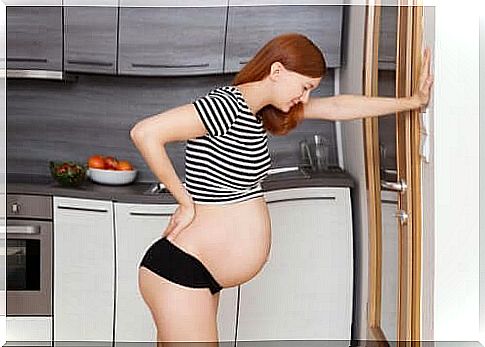
The conclusion is that we do not yet have enough scientific studies in our hands that could show us a sufficiently direct link between epidural anesthesia and postpartum depression. In fact, we already know that the onset of postpartum depression is also associated with many other factors that may affect the incidence of that pathology.
At the same time, however, what scientific studies have been able to prove is the relationship between pain experienced during childbirth and subsequent depression. However, it is good to keep in mind that this is just one of all the factors that can trigger postpartum depression. Thus, epidural anesthesia as well as other methods of analgesia can help to reduce the risk effectively, but are not in themselves able to prevent the development of that pathology.
Dr. Lim, director of obstetric anesthesiology at Magee Women’s Hospital, University of Pittsburgh, has explained:
In fact, Dr. Lim goes on to state that “ postpartum depression can develop from a variety of factors, including hormonal changes, maternal psychological adaptations, social support, and a history of psychiatric disorders ”.
In any case, we need to keep in mind that in postpartum depression, the most important thing is to be able to face it. In this sense, doctors and specialists can guide the mother by providing support and guidance to help her overcome depression. In this way, the psychological condition of the new mother improves, which can also improve the mental well-being of the baby and the whole family.
